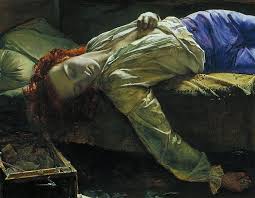Werther

by Jules Massenet
“But, why awaken me, oh, gentle breath of Spring? Oh, leave me to my rest”
For me, the most moving opera in the entire French repertory, Massenet’s searing masterpiece comes alive in this new English performing translation. The sufferings of young Werther, and his beloved Charlotte, were never more vivid or heartbreaking.
Excerpt:
Act III, Charlotte: “Va! Laisse couler mes larmes…“
"Oh, I cannot hold back these tears! It will do me good to cry. They say that the ones we do not shed fall back inside us and wound the soul. And over time, as drop by drop, they batter, and burn, and so bruise it, with each new hurt the heart grows weaker. It aches and suffers, in constant pain, becomes exhausted, is overwhelmed, and finally becomes so fragile that it just breaks!"
Copyright Kenneth Jakobs 2020
All rights reserved
Notes
Based on Goethe’s late eighteenth-century novel, The Sufferings of Young Werther, which became a sensation all over Europe, and is said to have prompted a rash of suicides among young swains, Massenet’s Werther is one of the masterpieces of musical drama. It portrays a man’s heartache more poignantly than any other opera I know.
It is hard, especially for contemporary audiences, to understand the powerful, all-consuming attachment that forms between Werther and Charlotte after just a few hours together. But, only the cold-hearted can fail to be moved by the depth of his pain and despair when his love is thwarted by the laws of both man and God, and finally, there is truly no other course left to him but to take his own life. Charlotte also suffers heroically and tragically.
Not known so much for its few short arias, but for unrelenting emotion, occasionally hopeful but mostly sad, remorseful and pessimistic, Massenet’s lush, romantic score is both achingly tender and dramatically tragic. He is a master of the big orchestral moments but also of understatement, and rivaled only perhaps by Puccini for his ability to touch us with his exquisite melodies and harmonies, whether sung or instrumental.
As with all my dramas, I have dispensed with the rhyme scheme of the original libretto, excepting only the Ossian poem that Werther reads in the third act. Rhymes are an invaluable adjunct to comedy but break the spell of a drama, at least for contemporary American audiences. My primary concern is that the text be natural, fit the music precisely, and be true to the characters and their emotions.
